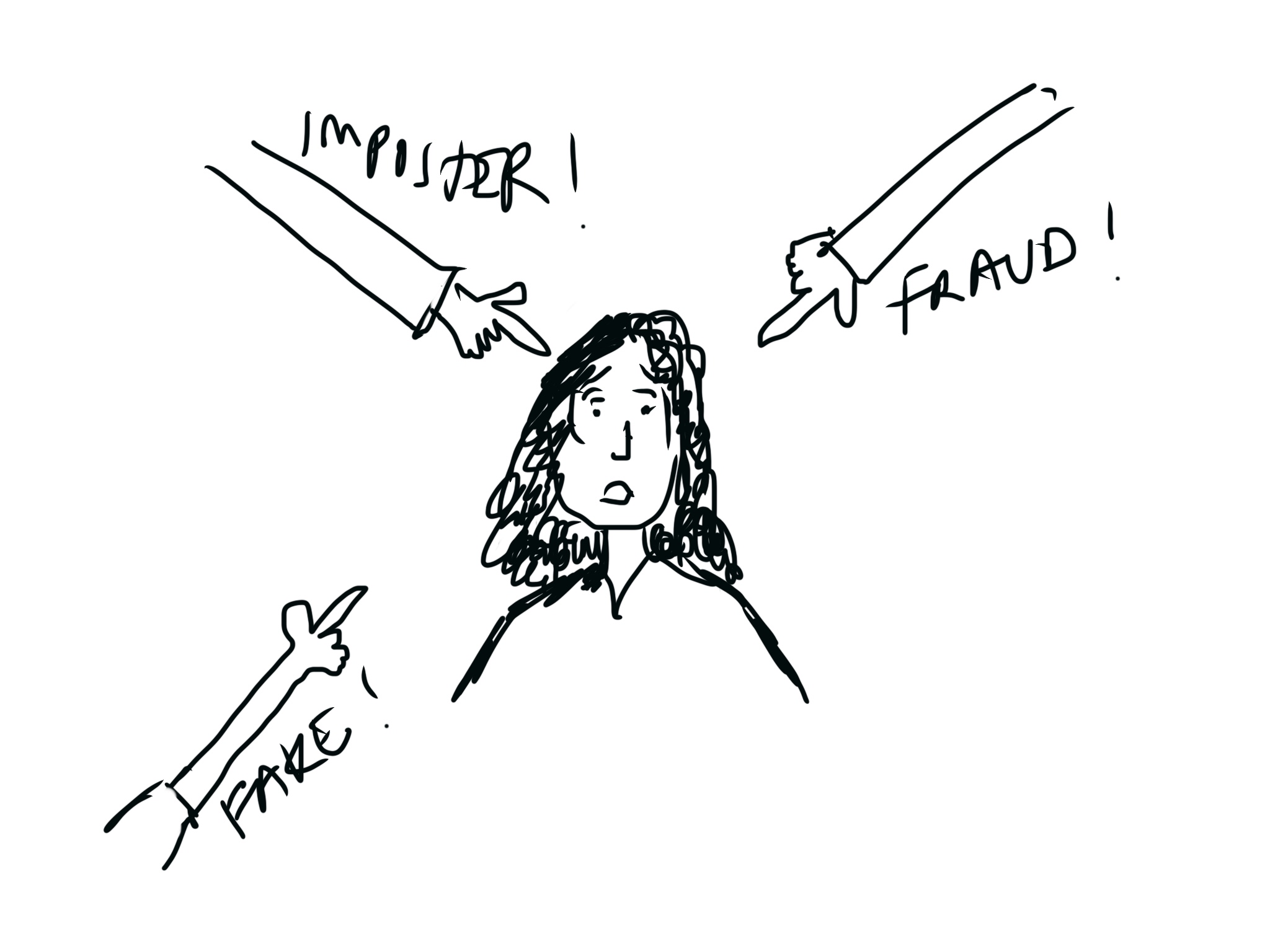Imposter syndrome can be defined as a collection of feelings of inadequacy that persist despite evident success. ‘Imposters’ suffer from chronic self-doubt and a sense of intellectual fraudulence that override any feelings of success or external proof of their competence.
Or, in other words, ‘I’m A Total Fake And Everyone Know It’ Syndrome.
Imposter Syndrome is the collection of thoughts and feelings you have that your success is only down to luck, and it is merely a matter of time before you get found out and everything you have ever worked for is snatched brutally from under your feet.
Now, hands up who has it? Well, ok I can’t see you but I am going to make an educated guess that most people reading this whipped up their hands faster than Hermione Granger in a Potions class. And how do I know that?
Because nearly everyone has it.
Research shows that nearly 70% of people have imposter syndrome. And not only do most people have it, but it is more prevalent amongst women and perfectionists. Perfectionist women, then, must suffer epidemic levels of imposter syndrome.
Why do we have it?
Well we are evolved to compare ourselves to others because we don’t want to be left out of the group (this meant death when you lived in cavewoman times). Plus women are encouraged to downplay their achievements, which sticks if you do it long enough. And don’t get me started on the effect being British has on feeling like an imposter.
There are indeed people who don’t have imposter syndrome. Some of those are happily well-adjusted folk who are able to see their success as well-deserved fruits of their labour. Others have a bad case of the Dunning-Kreuger effect, which basically means they are too stupid to know they what they don’t know but they think they know everything. Consequently imposter syndrome has no place in their lives. It might look like confidence to you on the outside, but sometimes it’s pure stupidity. Sound like a President we know? Give me imposter syndrome any day over the Dunning-Kreugers.
The imposter trap
The problem with imposter syndrome is that it tells you that once you have achieved doing x, y and z you will no longer feel this way. Get that article published, film funded, project signed off and you’ll finally feel you deserve your success.
But imposter syndrome is a tricky and slippery beast. Achieve that next big goal and it just tells you it was all down to luck. And so it goes on. But surely, I hear you say, if you achieve a really big goal, like winning an Oscar, you won’t possibly feel like a fraud anymore. Ladies of the jury, I present you with Exhibit A: Ms Jodie Foster
‘When I won the Oscar, I thought it was a fluke. I thought everybody would find out, and they’d take it back. They’d come to my house, knocking on the door, “Excuse me, we meant to give that to someone else. That was going to Meryl Streep.”
‘OK, OK’, you say, ‘that’s Jodie Foster. Take that Oscar right down the street to Meryl Streep! She won’t think she doesn’t deserve it!’ Ladies of the jury, I present you with Exhibit B, Ms Meryl Streep:
‘You think, “Why would anyone want to see me again in a movie? And I don’t know how to act anyway, so why am I doing this?”
At this rate, no one is going to hang on to this Oscar.
And that’s the point. Not even the most objectively successful and intelligent women in the world feel they are genuinely deserving of their success.
And therefore simple logic dictates that achieving more and more isn’t necessarily the answer to taming your imposter beast.
So what’s the answer?
Stop trying to get rid of the thoughts that tell scream ‘I am fraud!’. The more you struggle with it, the more you buy into having to achieve more.
How to beat your imposter syndrome
Adopt a growth mindset
Maybe it’s true that you aren’t the best person for the job although someone, somewhere thinks you are good enough. If that’s the case (and is it really so awful?) adopt a mindset that’s about improving and growing, not about getting rid of the voice telling you that you’re a fraud. That voice is probably going to be there to a greater or lesser degree every time you step out of your comfort zone.
Know your mind
Your mind is a great storyteller. Your mind loves, loves, loves to tell stories about you. And you love to believe them, whether they are positive or negative. But your mind tells you a billion things in a day – pick up shampoo on the way home, you’re brilliant, you’re always getting into this mess, you’re a failure…and so on, ad infinitem. You don’t listen to everything your mind says, but you do pay attention to the thoughts that jump up and down at you, and that’s usually the critical thoughts like ‘I am going to be revealed as a fraud’.
Instead of feeding your imposter syndrome, deal with it by using this 3 step process:
Notice it: notice when this story pops up. Notice if you start avoiding challenges because of your mind telling you you are a fraud.
Name it: say ‘Ah! There’s my imposter story coming out again’.
Nail it: Do what matters to you, even when your mind says you can’t.
Bottom Line
The problem isn’t whether you have imposter syndrome or not, it’s whether you let it stop you taking those big steps in work and life. Don’t wait to feel like you can do something perfectly before you make that leap. You’ll be waiting forever.
Instead, name your imposter syndrome as a another story your mind likes to tell, and go get your Oscar.


